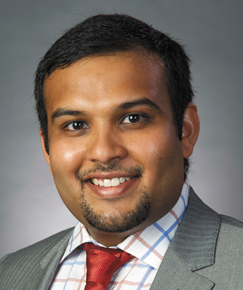by RUSHI SHAH
Real estate financing has many faces. Most hotel owners have an established, long-term relationship with a traditional banker. These go-to money sources offer lines of credit, as well as fixed loans on real estate, primarily to attract and preserve business and personal deposit customers. They are typically local community bankers charged with the responsibility of strengthening the community they serve by making credit available for successful developers reinvesting in their own backyard. This makes them ideal sources for construction financing and other higher risk transactions.
Local community banks trend small and are handicapped by regulatory restrictions such as legal lending limits, concentration limits, the inability to lend on complex asset classes such as hotels, and government regulations such as Dodd Frank. While these local relationships are integral to a successful hotel owner’s business, they should be leveraged mostly for maintenance. Owners looking to advance their business must augment traditional bank relationships with sophisticated, alternative lending sources that offer slightly higher risk capital.
TYPES OF ALTERNATIVE LENDERS
Where non-bank, capital market lenders edge out the competition is their ability to lend nonrecourse money. This is possible because unlike their traditional bank counterparts, capital market lenders focus on the asset’s ability to perform before the profile of the borrower. In addition to CMBS conduit lenders, there are many other non-local bank lenders that play in the commercial real estate lending arena, such as life insurance company lenders, traditional investment management companies, non-CMBS balance sheet lenders, credit unions, regional banks, private equity funds, both public and private real estate investment trusts (REITs), and traditional debt funds.
ACCESSING ALTERNATIVE LENDERS
Unlike local banks with easily accessible brick-and-mortar locations and sales teams, most alternative, non-local bank lenders do not have an army of bankers hunting for deals. Instead, most non-traditional lenders build relationships with expert mortgage investment bankers around the country to generate curated deal flow. This value chain creates a pipeline of steady, high-quality transactions that are already underwritten to market standards. By focusing on only viable deals, lenders are able to analyze and quote more deals in less time. This business model validates the importance of a good financial intermediary to the equation. Lenders also rely on intermediaries to provide local market knowledge now and refinance them out of their loans later. For borrowers, this trusted relationship opens the door to more capital sources and ensures a higher probability of successful execution.
BEYOND BROKERING A DEAL
Quality intermediaries or investment bankers do more than just broker deals from borrowers to lenders. They scan the market to identify the optimal placement and recognize that every transaction does not fit every financing platform. While some lenders’ sweet spot may be lending on hotels further down the chain scale in lower to middle markets, others won’t even look at a deal unless it is a Hilton or Marriott flag. A good investment banking debt advisor will know where to take which deal to maximize the probability of closing for the borrower and minimize wasted time through trial and error. This market intelligence is especially critical for established hotel owners looking to free up their balance sheet for sustainable growth or to capitalize a refinance or acquisition. Bottom line, cultivating the right industry relationships is critical for short- and long-term success.
 Rushi Shah is principal and CEO of the commercial mortgage and real estate investment banking firm and AAHOA Club Blue Member Mag Mile Capital. As a leader in hospitality financing, Shah specializes in structuring and placing high-leverage, non-recourse bridge and permanent debt with cash out for full – and limited-service hotels nationwide. Since joining the firm’s predecessor, Aries Capital, in 2015, Shah has structured and closed hundreds of millions in financing for all property types. Shah has held previous positions at Northern Trust and has an MBA from the University of Chicago’s Booth School of Business.
Rushi Shah is principal and CEO of the commercial mortgage and real estate investment banking firm and AAHOA Club Blue Member Mag Mile Capital. As a leader in hospitality financing, Shah specializes in structuring and placing high-leverage, non-recourse bridge and permanent debt with cash out for full – and limited-service hotels nationwide. Since joining the firm’s predecessor, Aries Capital, in 2015, Shah has structured and closed hundreds of millions in financing for all property types. Shah has held previous positions at Northern Trust and has an MBA from the University of Chicago’s Booth School of Business.




